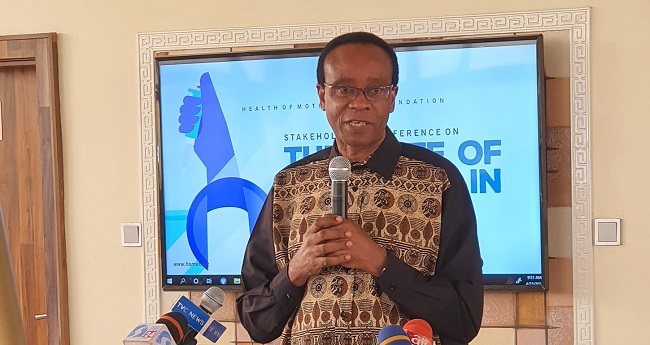The ravages of climate change on Africa and other vulnerable territories are by now clear to all who care to pay attention except those in sheer denial. Extreme weather events like the reoccurring flooding episodes in the Niger Delta, cyclones in Zimbabwe, Mozambique, South Africa, Eswatini and the heat waves in North America that have claimed thousands of lives and livelihoods are just the beginning of birth pains of the climate catastrophe if we keep peddling false solutions and avoiding real actions to tackle the crisis.

Destructive activities including irresponsible extraction and consumption, industrial agriculture and wars are at the core of the climate change menace yet instead of tackling these at the base, we give room for corporate profit interests, political and military dominance perpetuating the myths that climate change can be solved with mathematical formulae and other market schemes.
Any actions that do not target the root causes of climate change must be seen for what they are – fallacies. Some technologies are worsening the problem and are no solutions since they lock in bad climate behaviours by allowing polluters to continue with business as usual and hoping to capture and sequester their pollution or somehow deflect them into space or into soils, oceans, or plants. Such technologies include intentional largescale manipulation of earth systems otherwise known as geoengineering – including solar radiation management, ocean fertilisation, rock weathering and bioenergy with carbon capture and storage.
Other common false solutions are carbon capture and sequestration (CCS), carbon trading, net zero/carbon offsetting and REDD+. Carbon capture or even carbon removal must be approached from the sensible understanding that continual extraction and burning of fossil fuels are counterproductive and injurious to the planet, the people and other beings. We cannot solve our problems with the same thinking that landed us in the mess in the first place.
Real solutions exist. Top of the list is to leave fossil fuels in the ground.
Agroecology has been proven to cool the planet by enabling soils retain carbon, and reducing the amount of greenhouse gases released in various industrial agriculture processes such as production of inorganic fertilisers, transportation of food over long distances, intensive mechanisation etc. In addition, agroecology builds biodiversity which is key in resilience of ecosystems to climate change impacts.
The Conference of Parties (COP) of the United Nations Framework Convention on Climate Change (UNFCCC) ought to be a democratic space where real solutions such as agroecology are demanded with commitments made accordingly.
Countries in Africa that have suffered the most from climate change and are at greater risk must be adequately represented and carefully examine the narratives driving the conversations and negotiations at the upcoming COP27 in Egypt. We must wake ourselves up from the path of voluntary emissions reductions and so-called commitment to “phase down” the continued use of coal.
Our leaders must demand for climate Justice and insist on the payment of climate debt for historical and current harms. The marketisation of Nature, including through diverse forms of carbon trading must be denounced and rejected.
The Paris Agreement should be utterly reviewed with a new upper temperature target of well below 1.5℃ set knowing that 1.5℃ global average means 2.2℃ for Africa and that such a temperature scenario will utterly cook the continent. Sadly, the recently released UNEP’s Emissions Gap Report exposes the alarming hypocrisy embedded in the climate negotiations. The report shows that the current pledges made by nations will lead to temperature rise of between 2.2 and 2.6 degrees Celsius or even 2.8 degrees Celsius by the turn of the century. That would translate to about 3.3, 3.9 or 4.2 degrees Celsius – an incineration of Africa and parts of the world.
The COP27 should return to the drawing board and focus on binding emissions cuts with polluting nations accepting to do their fair share on the basis of Common But Differentiated Responsibilities (CBDR) rather than the so-called Nationally Determined Contributions (NDCs) that so far have not dented the huge store of carbon in the atmosphere.
According to the Emissions Gap Report, “The emissions gap in 2030 is 15 GtCO2e annually for a 2°C pathway and 23 GtCO2e for a 1.5°C pathway.” The report clearly notes that “countries are off track to achieve even the globally highly insufficient NDCs,” and would merely cut 3 GtCO2e out of the huge stock in the atmosphere.
African leaders going to the COP27 must demand for investment in agroecology with support for the majority farmers, rather than industrial, colonial or plantation agriculture that depends on fossil fuels, promotes risky technologies, and continues to devastate the environment, displace communities, and feed climate change.
This School of Ecology will further expose the false climate change solutions and highlight the relevance of agroecology in climate change mitigation and resilience.
Nnimmo Bassey, Director, Health of Mother Earth Foundation (HOMEF), spoke at the School of Ecology on “Agroecology as a Real Solution to Climate Change” on Tuesday, November 1, 2022
